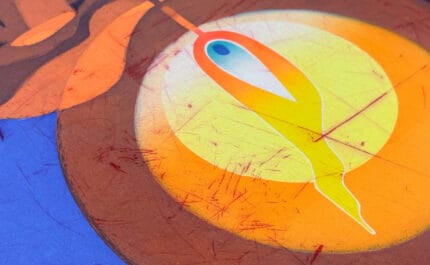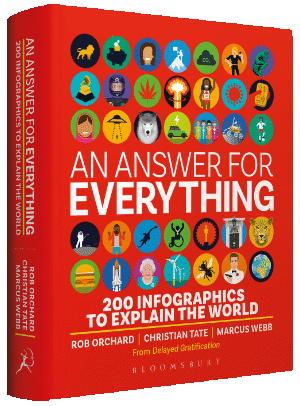An unlikely sanctuary
What brings people to the nightshift at McDonald’s? Portuguese graduate Ricardo Miguel Vieira started working the job in London after fleeing poor prospects in his home country. He tells his story – and those of three fellow immigrants who escaped war, racism and economic collapse to take shelter under the golden arches
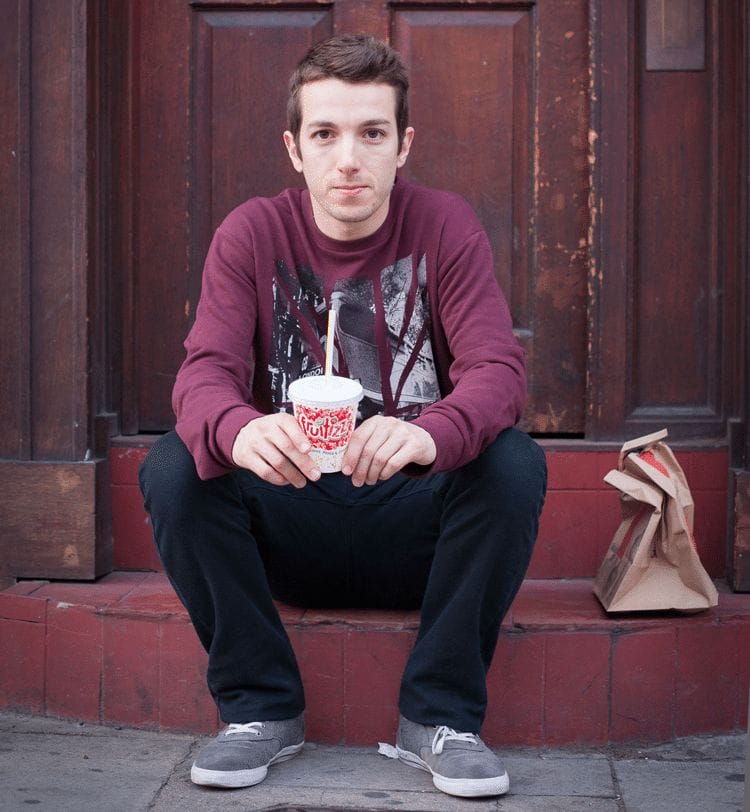
Photography: Jessica Parry
Thursday 28th February 2013 (Taken from: #10)
It’s four in the morning and I’m up to my elbows in chip fat. Sauce bottles and plastic food trays bob in the sink, whose surface shimmers with grease. I trawl the water in search of baskets from the fry station, which need to be rinsed and sanitised. Not for the first time tonight, I ask myself how I came to be working the graveyard shift at McDonald’s, in the middle of a bitter London winter and a thousand miles from home.
I left Portugal in 2012 on the advice of my prime minister, Pedro Passos Coelho. His message to recent graduates was stark: if you can’t find work, get out of the country and look abroad. As part of the most highly qualified and underemployed generation in Portuguese history, and with a shiny new degree from the Universidade Lusófona de Humanidades e Tecnologias in Lisbon, I set my sights on the UK. I cleared out my parents’ attic, sold their old possessions at a flea market and raised enough money for a flight to London.
Six months on, I’ve made a lot of milkshakes, served a lot of quarter-pounders and applied for hundreds of jobs but am yet to get asked in for a single interview. McDonald’s was the only one to return my call. I decided to work the night shift so that I’d have the day free for applications, but this stop-gap job is starting to look dangerously like a long-term option.
I am at least in good company. Economic collapse, civil war and – in the case of Greece – the rise of neo-Nazism have driven thousands of motivated, qualified young people to the UK’s capital, and many wind up flipping burgers in the middle of the night. This McDonald’s is a refugee camp at the heart of London, a place where everyone has a story to tell about how they found their way to shelter under the golden arches.
Fleeing the Dawn
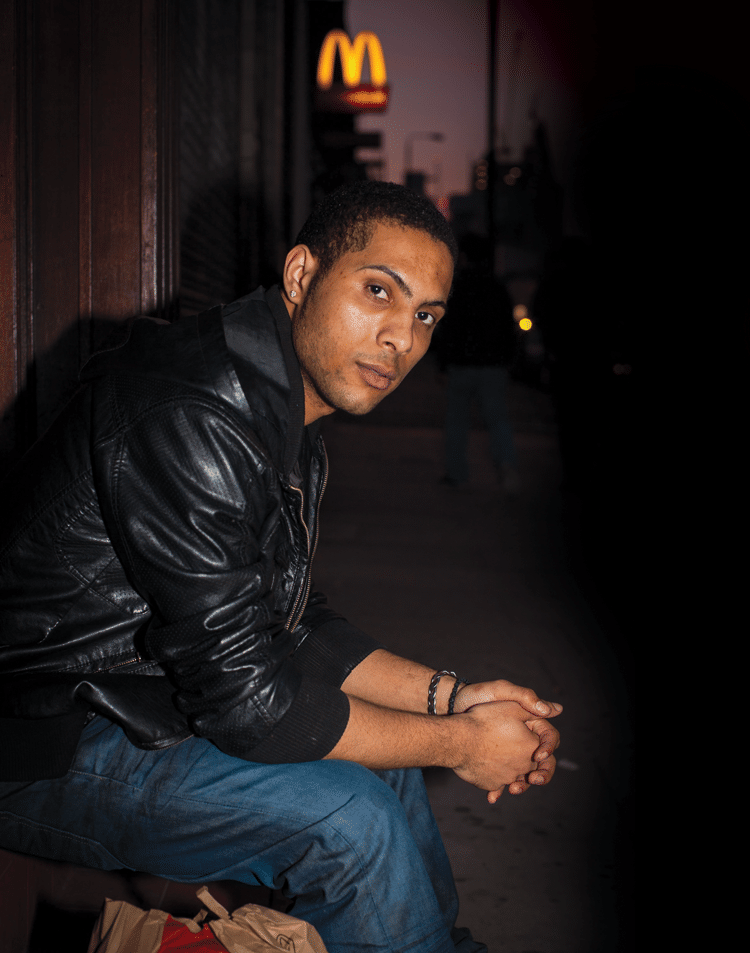
Serving food to customers at peak times is one of the most stressful experiences at McDonald’s. Queues spring up quickly and need to be dispatched as speedily as possible. That’s why I usually find manager Simos Karaoglou running around like a madman, shouting at the kitchen staff to speed up their grilling.
Simos was born in Zambia to a Greek missionary father and a Zambian mother. By the time he turned 15, his father had died and his mother had left the family to move to California to work as a nurse. Simos was left alone with his two older brothers. After completing high school in Lusaka, he moved to Greece in 2009, arriving in the middle of the worst financial crash in living history. Despite the dire situation he loved the country from the first moment. “I always felt like it was my home, it made me happy,” he says with a grin.
Simos moved in with his cousin in New Philadelphia, on the outskirts of Athens. He had a year living a laidback, bohemian life, partying with friends and working as a DJ, before spending nine months completing his compulsory military service. When he left the army, he joined a marketing company with his best friend, selling health and beauty products. The crisis grew deeper, the business wasn’t going well and money was scarce. Friends were sacked from their jobs, others worked overly hard for a pittance. One even had a stress-related stroke aged just 23. “Things were getting worse. In Greece, the crisis slammed us very hard,” he says.
I worried that if I walked into the centre of Athens, Golden Dawn supporters would put me in hospital”
No one saw a future in the country. Salaries were being slashed and it became harder to live with dignity. “Everything became limited, even down to what you could eat. I rented a studio flat with my girlfriend, but we ended up leaving it as we couldn’t pay the bills. But, still, the feeling was that we are in a crisis, let’s make the most out of it,” he says.
The nation’s fury bubbled over in demonstrations in front of the Greek parliament: Simos would gather his friends and join the thousands of people invading Syntagma Square, hoping to see some chance of a new start. “We’d go to demonstrations, but still nothing changed,” he says. “We had hoped to see people in the streets debating new ideas to solve the problems.” He took part in battles with the riot police (the MAT), which didn’t end well. “I threw stones, they threw tear gas,” he says.
Racism and xenophobia grew in the capital particularly after the ultranationalist party Chrysi Avgi – Golden Dawn – secured 18 seats in the parliament in the June 2012 elections. Right-wing sentiment spread through the streets and state services including the MAT, and despite his Greek nationality, Simos felt vulnerable because of his black skin. “They closed down my freedom,” he says. “I worried that if I walked into the centre of Athens, Golden Dawn supporters would put me in the hospital.”
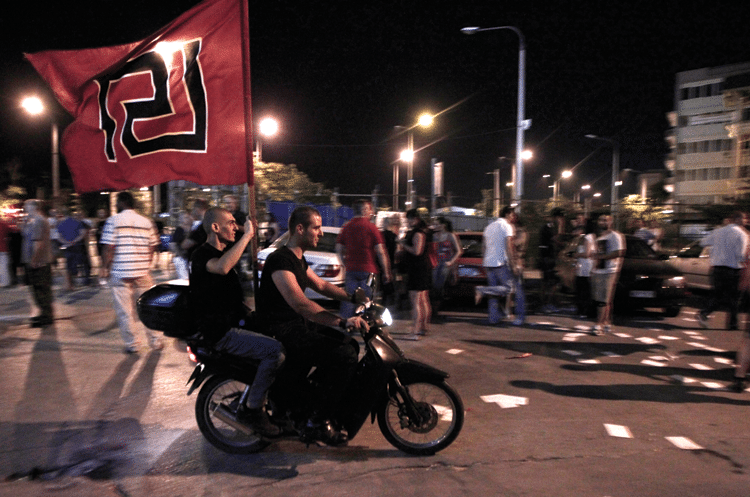
Supporters of Golden Dawn celebrate the results of the 2012 elections. Photo: Dimitri Messinis/AP/Press Association Images
One day Simos’s cousin was on a train with his two children when a group of Golden Dawn supporters got on board. “They screamed out ‘White people on the left and the rest on the right.’ The people moved because they were scared. But an Egyptian-Greek guy pulled out his ID and showed it to them. He said ‘Look, I’m Greek!’ They replied: ‘We don’t care.’ And they beat the shit out of him.”
It’s hard to imagine, but Simos supported Chrysi Avgi at the start. “Everybody thought they were good: they were doing good things, like giving food to people and sometimes replacing the police. But once they joined the parliament, they just lost it, they became straight-out Nazis,” he says. Worried about his security and with no prospect of a job, Simos finally decided to move to London to pursue his dream of becoming an aeronautical engineer and a commercial pilot. Such dreams have no place in Greece, where banks aren’t granting student loans any more.
Simos moved to London in September 2012, and regretted it almost immediately. “One week is the maximum amount of time someone should be in this city,” he says. “When we visit on holiday, we go to the parks and Big Ben and think that it’s London, but it’s not. McDonald’s is London: basically we live to work. I don’t want that, I want to have a goal and do more than just sleep and work.” Simos lives in a flat in East Ham with his girlfriend, who works at a Greek restaurant, and eight other people. “As soon as I saw London, I just thought: I’m going to be stuck here forever. I want to go back,” he says. “I think of leaving every single day, every moment.”
The silent engineer
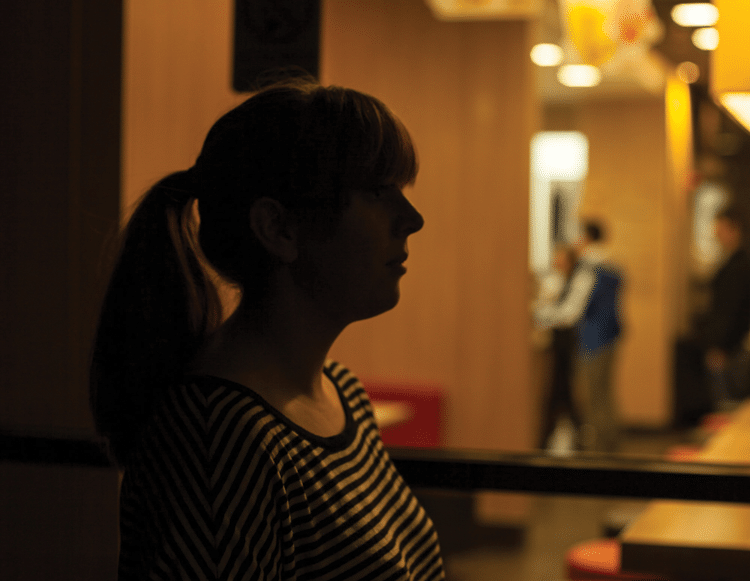
Paula Maria Fernandez, 24, can spend a whole night working at McDonald’s without speaking to a single soul. You’ll find her Ajaxing toilets and sweeping the entrance area with no time to stop and chat with customers or colleagues. Born and raised in Canena in southern Spain, she traded her hometown for London in October 2012 to escape the financial crisis that has left 55 percent of 16-to-24 year olds unemployed. She graduated in civil engineering from the University of Granada, but it was impossible to find any work in her field.
Paula arrived in London with her boyfriend, a 25-year-old graphic designer, with hopes of finding jobs and a better future. Like many other Spanish graduates, she saw no opportunities in her own country. “I felt scared by the situations I saw Spanish families living through,” she says. “Unemployment was going through the roof and shops were closing all the time.” She chose London as her new home in the hope of learning English: at the moment she barely speaks a word.
None of my friends are working, except for seasonal work helping with the olive harvest. The pessimism just becomes infectious”
The second of three daughters, Paula is the only one in her family who has fled the country. Her parents have a small business that has been suffering in the recession and her 28-year-old sister is struggling to get a break in child education. Spain is almost as bad at teaching foreign languages as the UK, which explains in part why most of Paula’s friends chose to stay in the country. “People are getting more and more depressed because they can’t pay their bills and support their families,” she says. “None of my friends are working, except for seasonal work helping with the olive harvest. The pessimism just becomes infectious.”
The first month in London was the hardest. Needing to make rent, Paula found a job as a part-time cleaning lady three weeks after arriving. “The Spanish people that I live with are all in the same situation,” she says. “We came to London to escape the crisis and learn English and we all got jobs as hostesses or cleaners on the minimum wage. We took low-paid jobs because we don’t speak English.” With uncertain hours of work, Paula couldn’t manage her debts and her boyfriend’s freelance work wasn’t enough to make ends meet. She was lucky enough to get a phone call from McDonald’s and signed a contract with the company, starting in December 2012. Paula finally found the stability she longed for, cleaning toilets in the night.
A naturally relaxed, happy character, Paula struggled with her first British winter. “I think this is a very stressful city,” she says. “It’s always dark, cold and sad.” One day I found her next by the outdoor bin, heaving in plastic bags filled with food debris. I asked whether she feels lonely while working. “I feel bored, but it gives me time to think about life,” she said. “I’m thinking of moving back to Spain in October. I have been back once already and I could see that the situation was worse, but I really miss my family and I don’t feel I’m learning any English at all. I need to go to an academy, but I can’t afford it because rent and transport are so expensive. If I’m going to be stuck at McDonald’s collecting the basic wage and not saving any money, I’d rather be back at home.”
The stranded Syrian
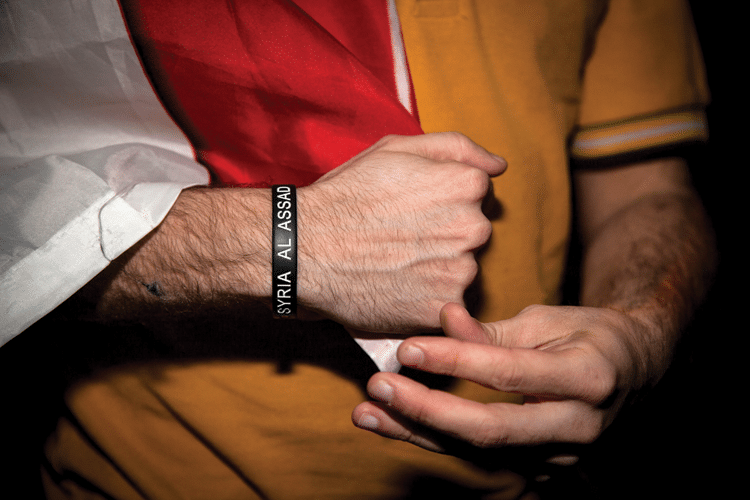
Haidra Al-Hassan, 23, left Damascus after the assassination of his old schoolfriend Amir Hassan. Back in September 2011, Amir had headed out on a holiday trip to Tartus, on the Mediterranean coast. Shortly after he left the capital, a yellow taxi started trailing the car he was travelling in, and its mask-clad occupants leaned out of the windows yelling: “Pull over, pull over!” When Amir’s driver refused, one of the pursuers pulled out a machine gun and sprayed the car with bullets. Amir was shot dead. Afterwards, it emerged that the only reason for his killing was that he was travelling in a car with Damascus license plates. “Damascus is the land of regime supporters, Homs is the land of rebels,” says Haidra. “The FSA (Free Syrian Army) killed the guy just because of the word ‘Damascus’.”
The Syrian people, two years ago, were loving each other. Syria was the country of all religions, all people. But now every Syrian has to show who and what he supports”
All Haidra wants is to fight for his country. Instead, he’s at the counter, serving McNuggets to drunks at 2am. He’s a strong supporter of the Syrian president, and refers to himself as “Ibn al-Assad” – “the son of Assad”. Haidra is an unusual mix: his mother is Alawite, the Shi’a religious faction which supports the president, and his father is Sunni, the religious majority which is fighting the regime. “I’m the union of both people, there’s no one like me in Syria,” he tells me proudly. “The Syrian people, two years ago, were loving each other. Syria was the country of all religions, all people. But now every Syrian has to show who and what he supports. I’m against that – I’m a Muslim, it doesn’t matter if I’m Alawite or Sunni. Each side must understand the other. People are shouting ‘Allahu Akbar’ and then dropping bombs. That’s not Islam, it gives it a bad image.”
While living in the Abu Rummaneh district of Damascus, Haidra enjoyed the life of a liberal Syrian. He studied business administration at the International University of Science and Technologies, went to raves with friends and smoked weed. When the Arab Spring began, he rooted for change in Syria. “At the beginning of the revolution, there were millions, like me, who wanted freedom of speech and different opposition groups within the government.” But as the first reports on violent crackdowns surfaced in March 2011, people started to want something more: the head of Bashar al-Assad.
Over the 18 months of civil war that followed, Haidra switched his support to the president. “I started believing the regime after I saw people getting killed because they were Alawites or in the military, getting kidnapped and raped by the FSA,” he says. Haidra acknowledges the atrocities of al-Assad’s regime, but still praises him. “He’s a human being, he has feelings. He’s a good man, but there is a war, people being killed on both sides. But wallah al-azim, I swear to God, he’s ready to die for Syria.”
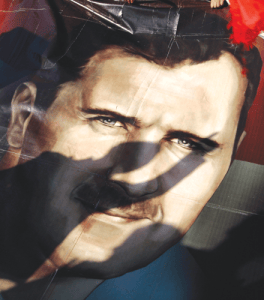
A giant poster depicting president Bashar al-Assad Photo: Muzaffar Salman/AP/Press Association Images
Haidra’s life in Damascus changed out of all recognition with the start of civil war. His parents forced him to be home by 9pm each night, and the city descended into a deep and unnatural silence. “Damascus was like another country. The streets were empty, no one was out any more.” Haidra’s mother, a housewife, grew up in the same street as Bashar al-Assad. In January 2012, two of her cousins, aged 24 and 26, were assassinated in the coastal city of Latakia, beheaded by the rebels. Their remains have still not been recovered.
When Haidra arrived in London it was as a student, with a monthly allowance from his father. The money stopped arriving after the FSA seized his father’s clothing factory on the outskirts of Damascus. “They stole everything from the factory. My parents lost their savings and are now in a tough situation,” he says. In the last few months of 2012, Haidra spent time waiting tables at a restaurant in Watford, before joining McDonald’s.
Though he hates London’s weather and high cost of living (“when I came here, £1 was 80 Syrian pounds; now it is 150 Syrian pounds, enough for lunch for a whole family in Syria”), Haidra has a soft spot for the city. But he hates sensing his family’s danger and not being near them. “I was studying one night and my mother called me on Skype. She said: ‘Don’t be scared! There was a huge explosion in our street. So many people died, the house shook all over.’” There had been an assassination attempt against the prime minister, Wael al-Halqi. “Two more minutes of conversation and I would have started crying,” says Haidra. “If my family dies, I want to be there. I don’t want to live without them.”
Haidra is happy enough in his job at McDonald’s. He likes wandering around alone, stocking up the Coke and ice cream machines while singing patriotic songs under his breath. He avoids confrontation with other Muslims at work, all of whom are Sunnis.
“If someone said something bad about me defending al-Assad, I know I wouldn’t be able to control myself; I would get into a fight.” He secretly wears a bracelet bearing the message “I [heart] Syria Al Assad”. He is convinced that with the help of Hezbollah, and provided the West does not intervene, the president will win the war within a couple of months. But if the rebels reach Damascus and al-Assad loses power, “people will be killing each other for hundreds of years.” And Haidra – like many of his co-workers on the night shift at McDonald’s – may very well never return home.
Some names in this article have been changed.
Slow Journalism in your inbox, plus infographics, offers and more: sign up for the free DG newsletter. Sign me up
Thanks for signing up.


